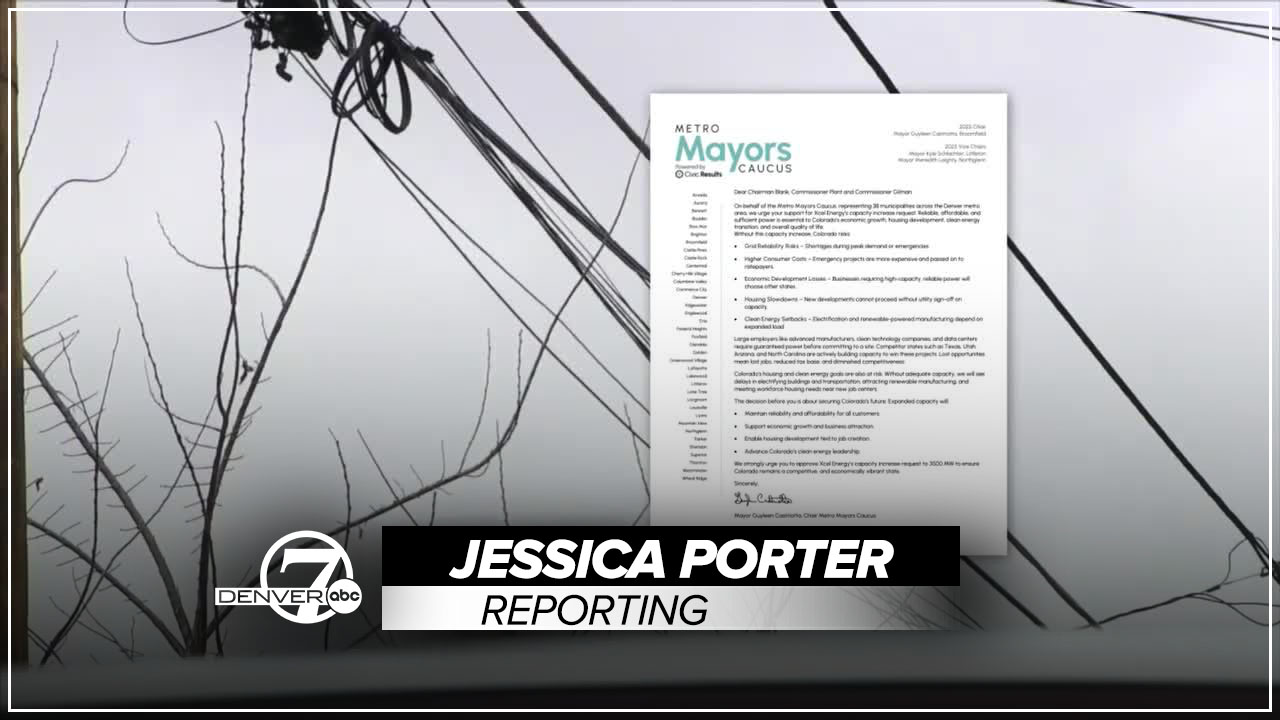DENVER — Xcel Energy is gaining support for its $5 billion plan to upgrade the system that delivers power to homes and businesses, which is making its way through the approval process with the Public Utilities Commission.
The Metro Mayors Caucus, which represents 38 cities across the Denver metro region, sent a letter to the PUC on Tuesday, throwing its support behind Xcel’s Distribution System Plan. The caucus cited economic growth and clean energy as reasons for approving the plan.
The letter said if the plan is not approved, Colorado faces future grid reliability risks, higher consumer costs and the loss of potential large employers.
“Competitor states such as Texas, Utah, Arizona, and North Carolina are actively building capacity to win these projects," the letter reads. "Lost opportunities mean lost jobs, reduced tax base, and diminished competitiveness."
- Read the full letter below:
The Distribution System Plan, which was proposed in December, will add 3.1 gigawatts of new capacity. It will add 100 new or replaced distribution substation transformers, 36 substations and 300 new feeder lines by 2029.
The modernization of Xcel’s infrastructure will help prepare for increased energy needs, which have been fueled by the growing popularity of electric vehicles, electric heat pumps, distributed storage and rooftop solar. Xcel Energy anticipates over 400,000 electric vehicles will be driven in Colorado by 2029.
“The grid is an aging piece of infrastructure," said Jack Ihle, regional vice president of regulatory planning at policy at Xcel Energy. "Many of these pieces of technology on it can be decades old, so we're looking to refresh that, expand the capacity and get ahead of these many new energy choices that are that customers are looking to do."
The utility company also anticipates an increase in the average Colorado residential electric bill by 9.01%, or about $8.71 per month, by 2029 to fund the project. Small businesses could see an increase of 8.45%, or about $10.24 per month, by 2029.
“We invest in the totality of this through our finance mechanisms, and then we recover the cost from the customers,” Ihle explained.
That model of paying for infrastructure projects has drawn criticism from customers in the past, who have paid increased rates in recent years for wildfire mitigation, natural gas costs, and, most recently, a time-of-use rate change that charges more for electricity in the evening hours.
“We're very focused on the cost challenge. We understand that nobody likes to see bill or rate increases,” Ihle said. "It's choice, it's reliability, and it's managing affordability in a prudent way.”
The Public Utilities Commission will hold a public comment session on Tuesday, August 26, from 4:30 p.m. to 6:30 p.m.






